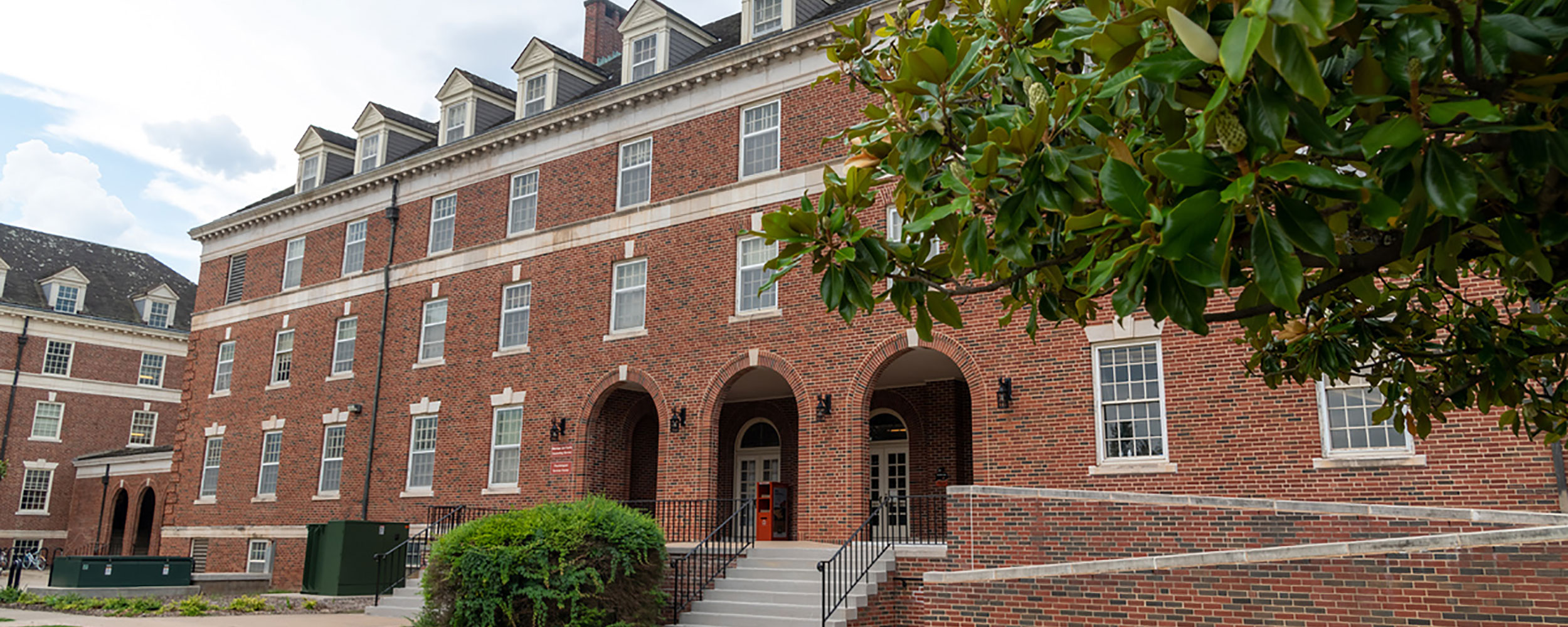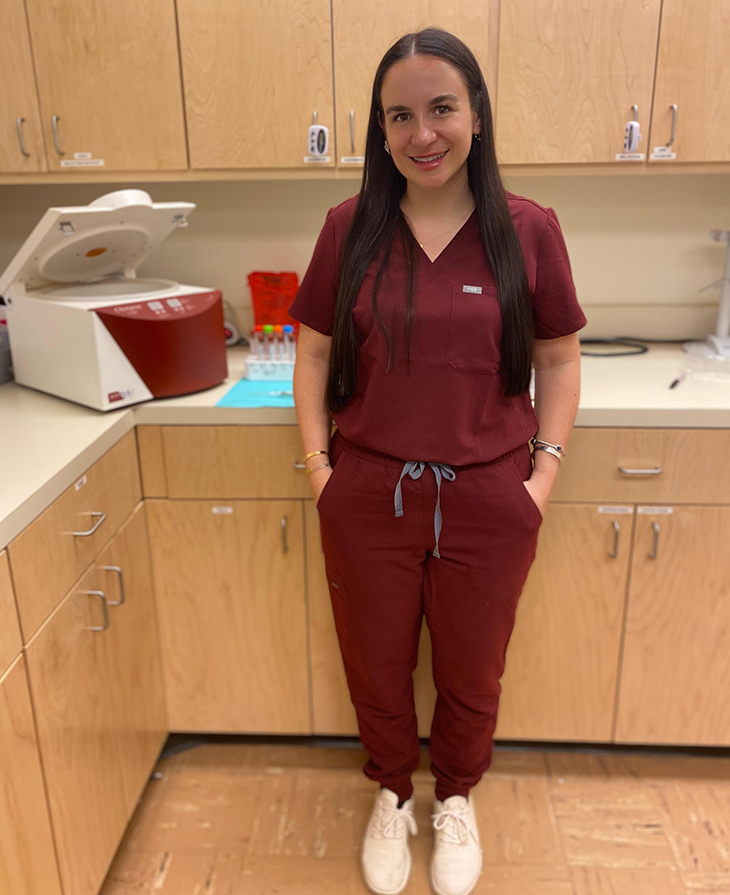
Psychology Ph.D. student receives $68K NIH grant to study aging and childhood trauma
Wednesday, July 28, 2021
Media Contact: Jacob Longan | Coordinator of Communications and Marketing | 405-744-7497 | jacob.longan@okstate.edu
Less than a year after submitting her grant application to the National Institute on Aging — a subset of the National Institutes of Health — Psychology Ph.D. student Cindy Tsotsoros was awarded $68,590 in May to study the impact of childhood adversity on indicators of brain health.
The R36 Dissertation Award had previously only been given to one other OSU student and funds both Tsotsoros’ stipend and her research with young and aging women.
“An often unconsidered harm of adverse childhood experiences (ACEs) is the risk it poses to brain development and later-life cognitive impairment,” said Tsotsoros, who hails from New York. “An assumption is that we have some sort of control over how well we age, but one thing we don’t have control over is our childhood and how that impacts our future.”

Dr. Misty Hawkins, Tsotsoros’ advisor and an associate professor in the Department of Psychology, described BDNF as the sidekicks to a brain’s superhero neurons.
“We think that these proteins — the patterns of them, the sidekicks — are being impacted if you have ACEs. They might support the neurons in different ways,” Hawkins said.
A graduate of the University of North Carolina-Wilmington and the University of Southern California, Tsotsoros joined Hawkins’ lab in 2020 right as the pandemic was ramping up. Included among the many cancelations and delays caused by COVID-19 was a postponement of the NIH grant deadline that Tsotsoros applied for — something she wouldn’t have done were it not for the help and encouragement of Hawkins, who served as her sponsor on the grant, and co-mentors Dr. Cindy Reese-Melancon (OSU) and Eileen Crimmins (USC-LA).
“She is an advanced student, so I trusted that she would be able to do this,” Hawkins said of Tsotsoros. “Cindy’s willing to do what it takes to get the science done. She’s fearless. … She even went and got trained in phlebotomy so she could do this project.”
The work Hawkins has been doing with middle-aged women served as the catalyst for Tsotsoros’ research with additional age groups (young adults and 65+). The Ph.D. student helped look at biomarkers in blood and even planned to use data from Hawkins’ parent study for her dissertation before getting her own NIH grant, which enables her to do new blood work.
“When it came time for me to do my own project, I knew I wanted to incorporate all the things I had done in Misty’s lab,” Tsotsoros said. “If Misty wasn't my advisor, I'm not sure I would have had the same opportunity to do this.”
Hawkins added that her study with middle-aged adults was small, so when Tsotsoros — with her “expertise in geriatrics” — presented the idea of expanding the research to more women, Hawkins didn’t need much convincing. “It seemed like a really good fit,” she said. “When I had a chance to work with her and we got to talk about our overlap, it was fantastic. … I said, ‘Why don't we work together and look at this across the lifespan.’”
Tsotsoros explained further that because they already know that age is the No. 1 factor in brain health, they hope to “identify novel risk factors.”
“If we can figure out a neurocognitive profile or brain substrates, we could find intervention targets to protect brain health and to promote healthy aging across a lifespan in groups with and without early childhood adversity,” Tsotsoros said. “Things like education, diet, weight — things like this can protect you from signs of dementia. … Early-life adversity can increase the odds of developing late-onset dementia by four times the amount. Results of this pilot will be the first steps in understanding the relative contribution of age versus adverse childhood events on markers of brain health.”
All this and 97 pages more went into Tsotsoros’ final grant application, a feat sweetened by the NIH accepting it in the first round.
“We were just hoping I got scored. That was it,” Tsotsoros said, explaining that a score from the NIH separates the fundable proposals from the lackluster.
“They take the best half and score them — if you get a score, that’s a big deal. That goes on your C.V.,” Tsotsoros said, who was on a roadtrip to Nashville in October when she found out her grant proposal had received a 29 (the lower the score, the better) and would most likely get funded. In late April she finally got the official word. “Funding started May 1,” Tsotsoros said.
With her research now underway, Tsotsoros is pleasantly busy screening participants, conducting tests and drawing blood.
“It’s kind of exhilarating to run your first participant,” she said. “By the time you actually run your first participant, you’ve done so many test runs and tweaked so many things, it feels good to finally get started and to realize it’s real. I’m doing something that seemed so big and impossible.”
Note: Recruitment for Cindy Tsotsoros’ study is still ongoing. To take the qualifying prescreen test, visit reachlab.org and click on the banner, “Participate in the ACEs and Aging Study.” Eligible participants who complete the cognitive tests and blood work receive $50 compensation. Tsotsoros can work with participants in both Stillwater and Tulsa.
Story by: Elizabeth Gosney, College of Arts and Sciences graduate student
